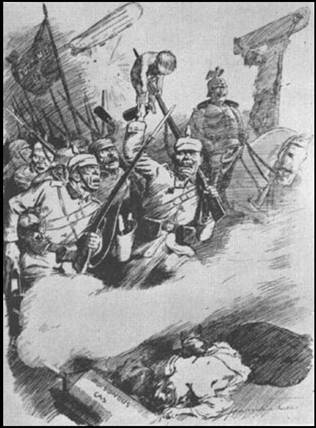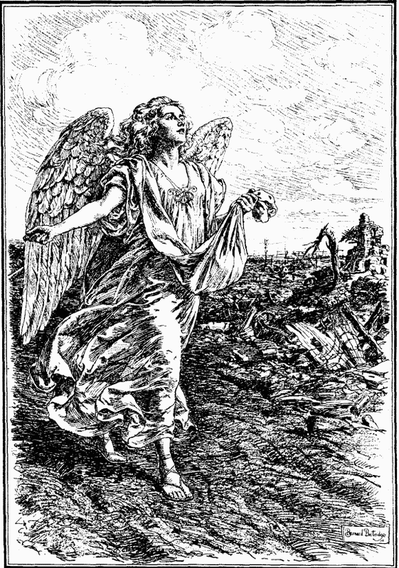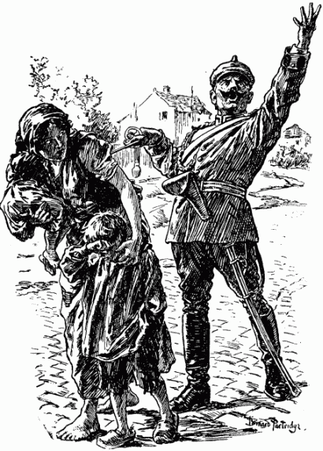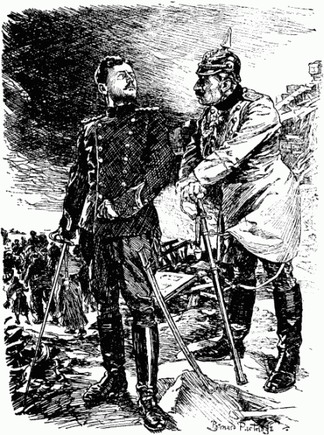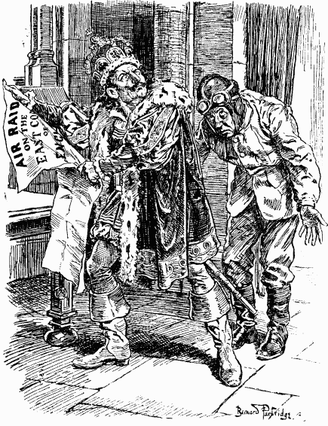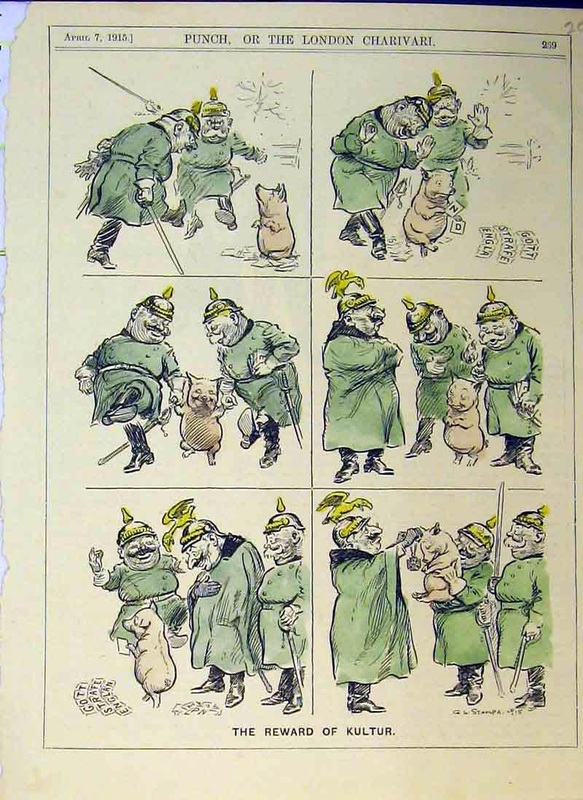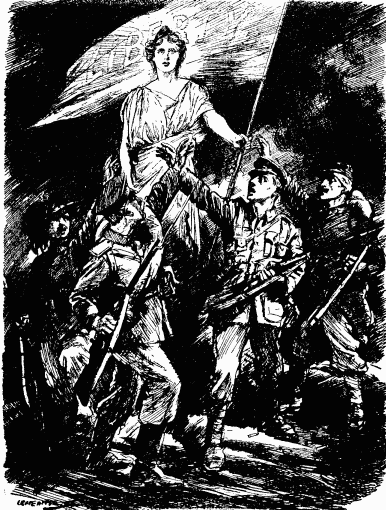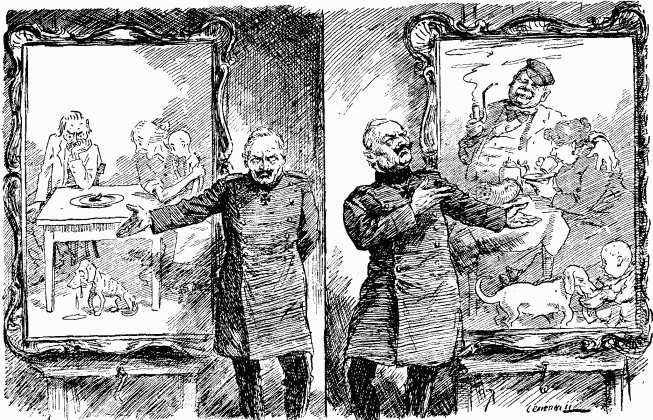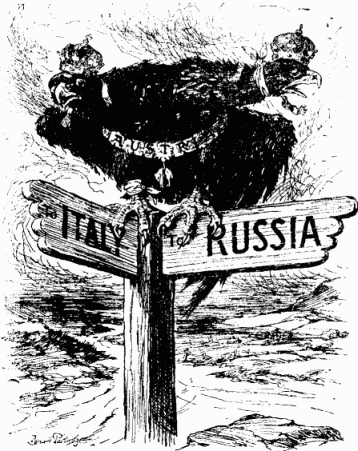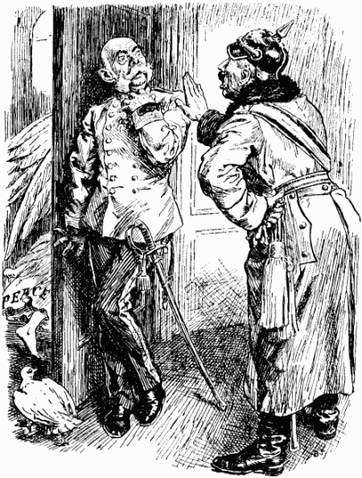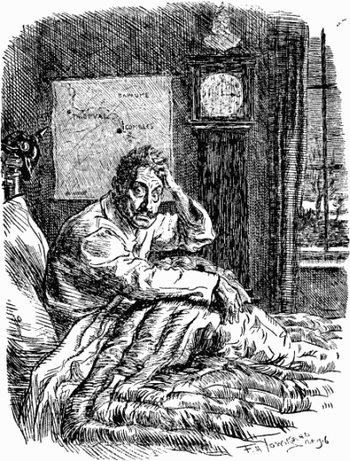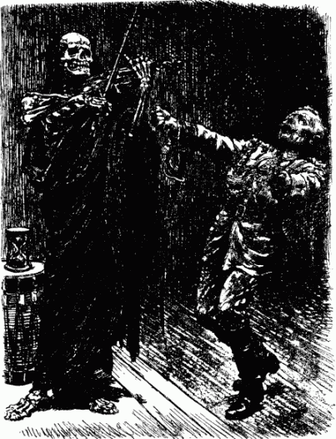gallery walk:
THE PROPAGANDA WAR
"It is not an army we must shape and train for war;
It is a nation."
-president Woodrow wilson
As the threat of war turned into the arrival of war, nations across Europe scrambled not only to prepare the troops, but as Wilson said, "shape and train...a nation" for war. In the United States, the creation of the Committee on Public Information (CPI) placed the role of unifying the country into the hands of the muckraking journalist George Creel. The head of the CPI acknowledged that the function of his agency was to “convince a lukewarm population that the nation was engaged in a life-and-death struggle against the forces of darkness.” On this platform, Creel and the CPI “not only ‘conditioned’ all important news originating in Washington, but totally controlled it.” Immediately, the government released leaflets, pamphlets, journals, and books that detailed German atrocities and convinced the average American that this was “a war to end all wars.”
Similarly in Europe, the Allied nations created a "smear campaign" of epic proportions to convince its people of the horrors of Austrian and German aggression. In the book, Propaganda Techniques in World War I, war historian Howard Lasswell explains that propaganda can be subdivided into four main categories:
Punch Magazine was a British satirical periodical, much like that of The Onion today, but for a slightly "lower-brow" audience. They aimed at humorously illustrating the events of the time, but often retained such strong propaganda that its credibility was lost.
Mr. Punch's History of the Great War was published in 1919 and shows the First World War from the British perspective. "Mr. Punch" is a recurring theme of Punch Magazine, and offers a disassociated, yet sarcastic view of things around him. He's crude, rude, and offensive...but great! Below are some quotes and images taken from the book. Examine them, and answer the questions below.
Similarly in Europe, the Allied nations created a "smear campaign" of epic proportions to convince its people of the horrors of Austrian and German aggression. In the book, Propaganda Techniques in World War I, war historian Howard Lasswell explains that propaganda can be subdivided into four main categories:
- War Aims and the establishing of the "reason for war"
- War Guilt and the assigning of all "death and destruction" to the enemy abroad
- Satanism and the creation of the enemy as subhuman
- The "Illusion of Victory" and the convincing that "we are winning", even if the nation was, in fact, close to defeat.
Punch Magazine was a British satirical periodical, much like that of The Onion today, but for a slightly "lower-brow" audience. They aimed at humorously illustrating the events of the time, but often retained such strong propaganda that its credibility was lost.
Mr. Punch's History of the Great War was published in 1919 and shows the First World War from the British perspective. "Mr. Punch" is a recurring theme of Punch Magazine, and offers a disassociated, yet sarcastic view of things around him. He's crude, rude, and offensive...but great! Below are some quotes and images taken from the book. Examine them, and answer the questions below.
From the book, "Nearly fifty years of peace had blinded us to fifty years of relentless preparation for war. But if we were deceived by the treachery of Germany's false professions, we had no monopoly of illusion." In one of the first chapters, we find the following poem:
THE TWO GERMANIES
Marvelous the utter transformation
Of the spirit of the German nation!
Once the land of poets, seers and sages,
Who enchant us in their deathless pages,
Holding high the torch of Truth, and earning
Endless honor by their zeal for learning.
Such the land that in an age uncouth'er
Bred the soul-emancipating LUTHER.
Such the land that made our debt the greater
By the gift of Faust and Struwwelpeter.
Now the creed of Nietzsche, base, unholy,
Guides the nation's brain and guides it solely.
Now Mozart's serene and joyous magic
Yields to RICHARD STRAUSS, the haemorrhagic.
Now the eagle changing to the vulture
Preaches rapine in the name of culture.
Now the Prussian Junker, blind with fury,
Claims to be God's counsel, judge and jury,
While the authentic German genius slumbers,
Cast into the limbo of back numbers.
Marvelous the utter transformation
Of the spirit of the German nation!
Once the land of poets, seers and sages,
Who enchant us in their deathless pages,
Holding high the torch of Truth, and earning
Endless honor by their zeal for learning.
Such the land that in an age uncouth'er
Bred the soul-emancipating LUTHER.
Such the land that made our debt the greater
By the gift of Faust and Struwwelpeter.
Now the creed of Nietzsche, base, unholy,
Guides the nation's brain and guides it solely.
Now Mozart's serene and joyous magic
Yields to RICHARD STRAUSS, the haemorrhagic.
Now the eagle changing to the vulture
Preaches rapine in the name of culture.
Now the Prussian Junker, blind with fury,
Claims to be God's counsel, judge and jury,
While the authentic German genius slumbers,
Cast into the limbo of back numbers.
1. Generally, how did the Allied nations view the "transformation" of Germany?
2. In examining both the images above, what more can you gain about the perception of the German soldiers?
A poem accompanies the image above:
"The hand that wrecks the cradle rules the world."
3. The Germans are constantly shown as "butchers", but the "butchers of 'what'"? Examine both the image above and accompanying poem.
- They say the Lion and the Tiger sweep
Where once the Huns shelled babies from the deep,
And Blücher, that great cruiser--12-inch guns
Roar o'er his head, but cannot break his sleep. - But you, who sent them out to do this shame;
From whom they take their orders and their pay;
For you--avenging wrath defers its claim,
And Justice bides her day.
"The hand that wrecks the cradle rules the world."
3. The Germans are constantly shown as "butchers", but the "butchers of 'what'"? Examine both the image above and accompanying poem.
4. "Gott straffe England" loosely translates to "May God Punish England". Try to make sense of the above cartoon. What's happening here? (HINT: You might want to use the phrase, "if play your cards right"...)
By April 1915, the one-year anniversary, we see Lasswell's thesis of the "Illusion of Victory" appear grandly in the Mr. Punch book. See how it's believed that "Liberty" is one your side? That's the "Illusion of Victory". True liberty, an end to the war, was still a ways off...
Germany would "propagandize" their own "illusion of victory". They'd also attempt to "Satanize" the English, as seen in the image below.
Germany would "propagandize" their own "illusion of victory". They'd also attempt to "Satanize" the English, as seen in the image below.
Austrian alliance to Germany was waining; it was even suspected that the Austrians were attempting to "cheat on" Germany with peace! The end appeared to be drawing to a close for Germany as well.
Germany would eventually surrender after a few final, fruitless pushes. And we find the following image and poem towards the book's close:
A LOST LAND
A childhood land of mountain ways,
Where earthy gnomes and forest fays,
Kind, foolish giants, gentle bears,
Sport with the peasant as he fares
Affrighted through the forest glades,
And lead sweet, wistful little maids
Lost in the woods, forlorn, alone,
To princely lovers and a throne.
Dear haunted land of gorge and glen,
Ah me! the dreams, the dreams of men!
A learned law of wise old books
And men with meditative looks,
Who move in quaint red-gabled towns,
And sit in gravely-folded gowns,
Divining in deep-laden speech
The world's supreme arcana--each
A homely god to listening youth,
Eager to tear the veil of Truth;
Mild votaries of book and pen--
Alas, the dreams, the dreams of men!
A music land whose life is wrought
In movements of melodious thought;
In symphony, great wave on wave--
Or fugue elusive, swift and grave;
A singing land, whose lyric rhymes
Float on the air like village chimes;
Music and verse--the deepest part
Of a whole nation's thinking heart!
Oh land of Now, oh land of Then!
Dear God! the dreams, the dreams of men!
Slave nation in a land of hate,
Where are the things that made you great?
Child-hearted once--oh, deep defiled,
Dare you look now upon a child?
Your lore--a hideous mask wherein
Self-worship hides its monstrous sin--
Music and verse, divinely wed--
How can these live where love is dead?
Oh depths beneath sweet human ken,
God help the dreams, the dreams of men!
A childhood land of mountain ways,
Where earthy gnomes and forest fays,
Kind, foolish giants, gentle bears,
Sport with the peasant as he fares
Affrighted through the forest glades,
And lead sweet, wistful little maids
Lost in the woods, forlorn, alone,
To princely lovers and a throne.
Dear haunted land of gorge and glen,
Ah me! the dreams, the dreams of men!
A learned law of wise old books
And men with meditative looks,
Who move in quaint red-gabled towns,
And sit in gravely-folded gowns,
Divining in deep-laden speech
The world's supreme arcana--each
A homely god to listening youth,
Eager to tear the veil of Truth;
Mild votaries of book and pen--
Alas, the dreams, the dreams of men!
A music land whose life is wrought
In movements of melodious thought;
In symphony, great wave on wave--
Or fugue elusive, swift and grave;
A singing land, whose lyric rhymes
Float on the air like village chimes;
Music and verse--the deepest part
Of a whole nation's thinking heart!
Oh land of Now, oh land of Then!
Dear God! the dreams, the dreams of men!
Slave nation in a land of hate,
Where are the things that made you great?
Child-hearted once--oh, deep defiled,
Dare you look now upon a child?
Your lore--a hideous mask wherein
Self-worship hides its monstrous sin--
Music and verse, divinely wed--
How can these live where love is dead?
Oh depths beneath sweet human ken,
God help the dreams, the dreams of men!
5. The assigning of war guilt and the debasing of the Germans as "Satanists" seem to be the biggest motives in propaganda. CONCLUDE: Why should the Germans be guilty? And how were they shown as "Satanists"?
